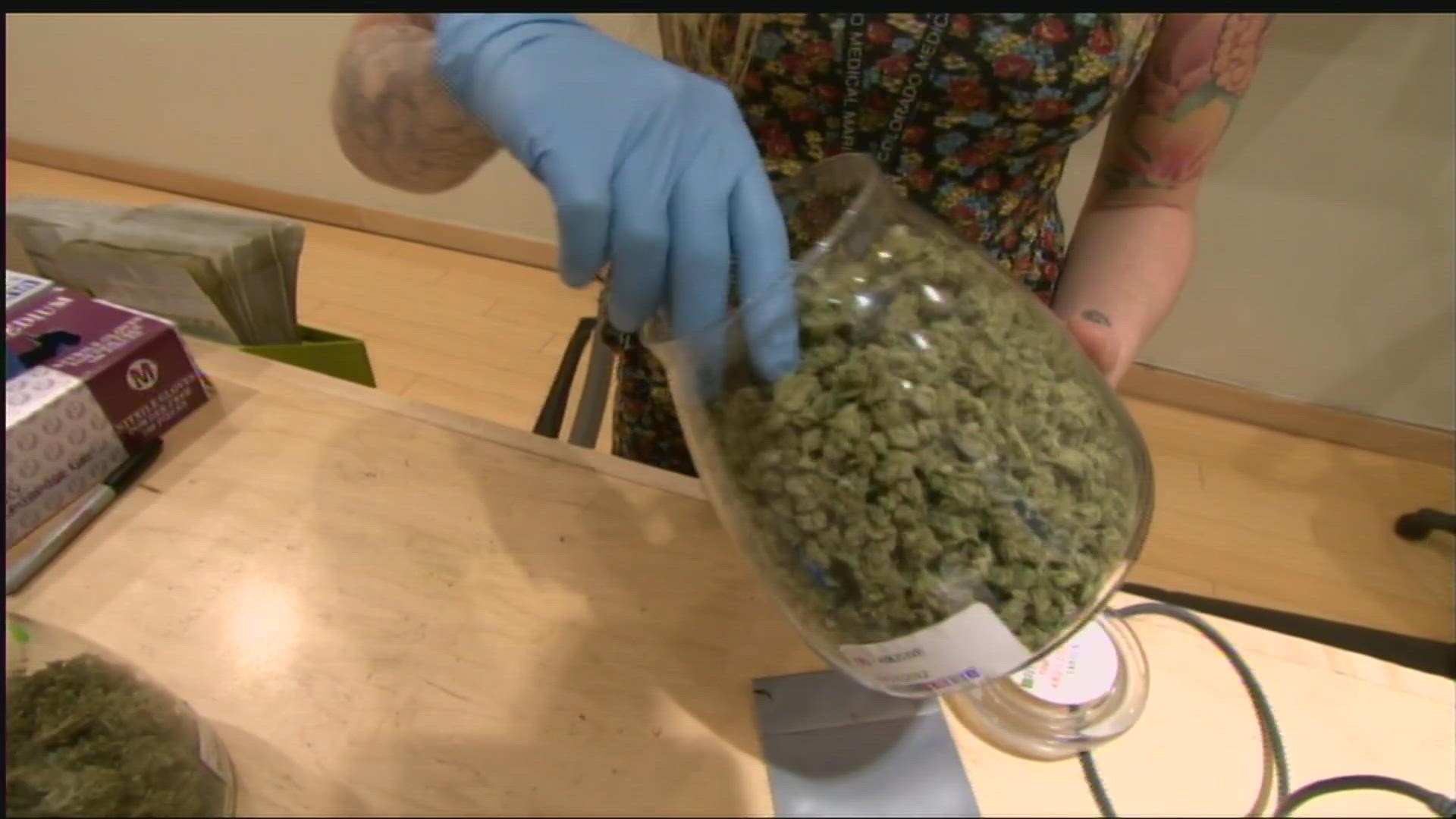OLYMPIA, Wash. — In Washington, there is currently a 37% excise tax on the sale of each cannabis product-- the highest excise tax in the continental U.S. Money made from this tax is allocated to state programming, primarily the Department of Health.
But now House Bill 1641, introduced in the legislature earlier this month, could increase the excise tax up to 65% on certain products, depending on their THC potency.
THC, or tetrahydrocannabinol, is the psychoactive ingredient of marijuana.
Under the bill, marijuana products with THC content less than 35% would remain at a tax rate of 37%, like it is now. Products with 35-59% THC would have a 50% tax, and those with THC of 60% or more would have a 65% tax.
"If we fail to act now to counter the emerging public health crisis created by high-potency cannabis products, we will soon have another epidemic on our hands," said Rep. Lauren Davis, D-Shoreline.
Davis expressed numerous concerns about the health risks that go with using high-potency THC products.
Meanwhile, pot shop operators told KING 5 they hope this bill goes away like a puff of smoke.
"I think would put retailers, growers, etc. out of business," said Beth Thomas, operations manager with Bud Hut, a cannabis retailer.
The bill would also enact an age limit of 25 years old for buying high-potency THC products unless it’s for a patient needing it for medical use.
"That's significant," said Myles Kahn, owner of Buddy's Cannabis in Renton. "That's a big portion of our customer base.”
Thomas said she is concerned that more expensive weed will drive consumers back to the black market.
"You can only pay so much before, you know, you're going to try to find a cheaper option. And the cheaper option is going to be out on the street where it isn't tested or regulated," said Thomas.
On the other hand, a father named Don Danielson testified in support of the bill after the death of his son, which he said was “due directly to the use of high-potency marijuana" in 2019. He added, "Brandon was diagnosed with Cannabis hyperemesis syndrome, where he would go into bouts of repeated vomiting.”
Davis also pointed to a study suggesting that high-potency THC products could eventually lead to various health conditions like schizophrenia.
"High-potency cannabis is uniquely correlated with the onset of psychotic disorder," said Davis.
Thomas defended the products, however, arguing that when dosed correctly, they can cure pain and illness in many of her customers. Kahn called the higher tax proposal "draconian."
"There's always going to be isolated cases of the abuse, or overuse, people with more sensitivity than others. But this is an adult-use industry, right?" said Kahn. "So people should be able to make informed and intelligent decisions.”
The money the state would make from the proposed tax would go to the Department of Health for targeted public health messages and social media campaigns.
Click here for the latest updates on the bill's movement in the legislature.

